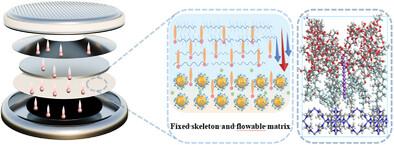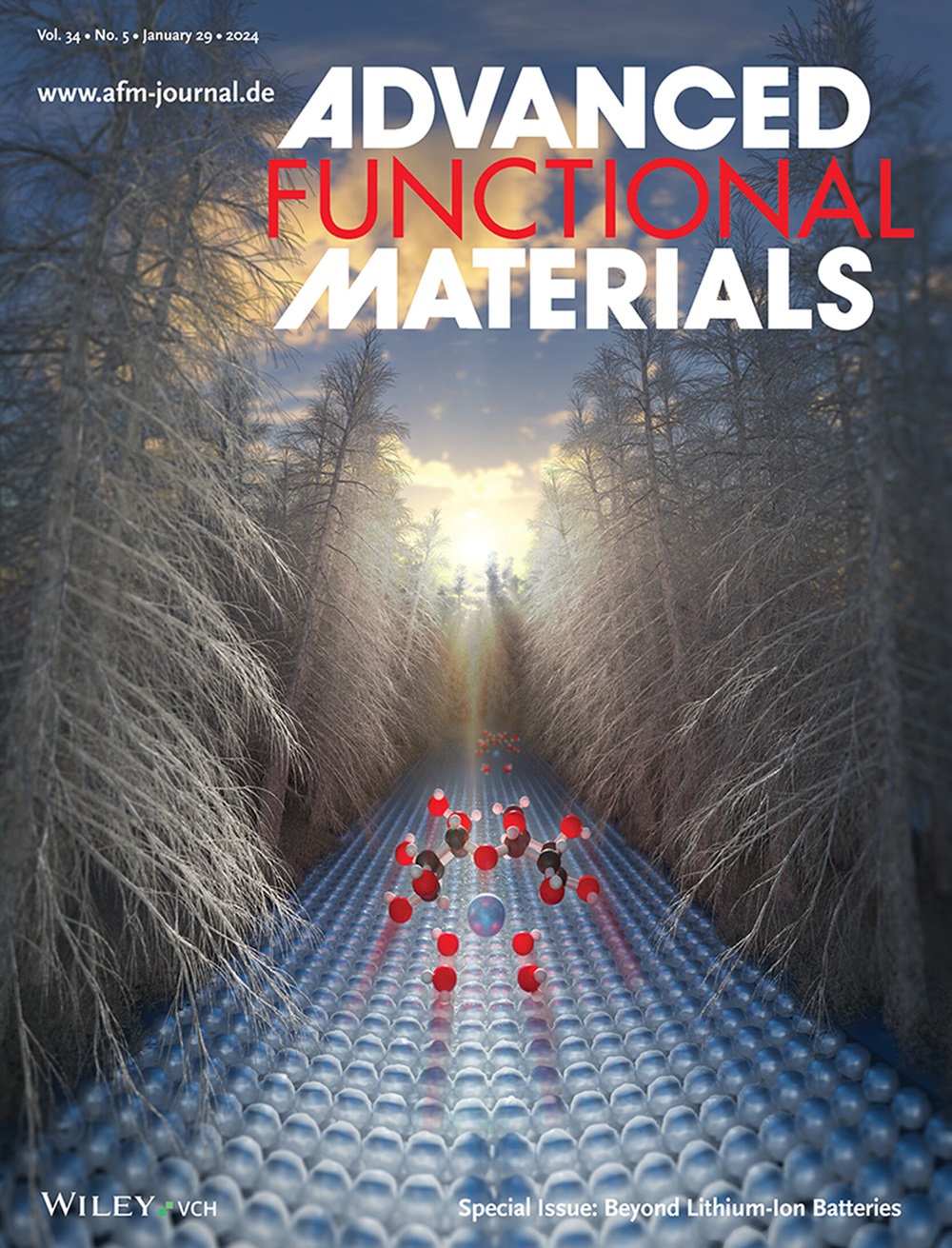复合固体电解质中定向和快速锂离子转移通道的梯度软刚性结构构建
IF 19
1区 材料科学
Q1 CHEMISTRY, MULTIDISCIPLINARY
引用次数: 0
摘要
在复合固体电解质(cse)中实现锂离子通量调节仍然是开发具有高压兼容性的抑制枝晶生长的固态锂金属电池的关键挑战。本文介绍了一种新的Li⁺传输梯度软刚性结构CSEs概念,该CSEs由聚偏氟乙烯-共六氟丙烯(PVDF-HFP)基体与醋酸盐功能化纤维素纳米晶体(CNC-PVAc)和ZIF-8集成而成。这种结构使Li +能够通过低扭曲度通道定向、快速传导,显著抑制锂枝晶的成核和生长。与Li + /Li相比,PHCF的电化学稳定窗口高达4.82 V。理论模拟揭示了这种设计的Li +传输梯度软刚性结构cse的卓越性能的协同内在根源。因此,合成的CSEs在60℃时表现出高离子电导率(1.79 × 10−4 S cm−1)和高迁移数(tLi⁺)0.79。相应的全固态LiFePO4||Li和NCM811|| Li电池在60°C时的比容量分别为163.78 (0.1C)和190.67 mAh g−1 (0.5C)。本文提出了一种具有固有安全性的高性能cse,为固态电池的新设计理念提供了有价值的见解。本文章由计算机程序翻译,如有差异,请以英文原文为准。

Constructing Gradient Soft-Rigid Structure for Directed and Fast Li-Ion Transfer Channels in Composite Solid Electrolytes
Achieving lithium-ion flux regulation in composite solid electrolytes (CSEs) remains a critical challenge for developing solid-state Li-metal batteries suppressing dendrite growth with high-voltage compatibility. Here, a new concept of Li⁺ transport gradient soft-rigid structure CSEs is introduced, which comprises a poly(vinylidene fluoride-co-hexafluoropropylene) (PVDF-HFP) matrix integrated with acetate-functionalized cellulose nanocrystals (CNC-PVAc) and ZIF-8. This structure enables directed and fast Li⁺ conduction through low-tortuosity channels, significantly inhibiting lithium dendrite nucleation and growth. The electrochemical stability window of PHCF spans up to 4.82 V versus Li⁺/Li. Theoretical simulations reveal a synergistic intrinsic origin of the exceptional performance for this designed Li⁺ transport gradient soft-rigid structure CSEs. Consequently, the synthesized CSEs demonstrate high ionic conductivity (1.79 × 10−4 S cm−1) and a notably high Li⁺ transference number (tLi⁺) of 0.79 at 60 °C. Corresponding all-solid-state LiFePO4||Li and NCM811|| Li cells deliver impressive specific capacities of 163.78 (0.1C) and 190.67 mAh g−1 (0.5C) at 60 °C, respectively. This work presents a high-performance CSEs with intrinsic safety, providing valuable insights for novel design concept of solid-state batteries (SMBs).
求助全文
通过发布文献求助,成功后即可免费获取论文全文。
去求助
来源期刊

Advanced Functional Materials
工程技术-材料科学:综合
CiteScore
29.50
自引率
4.20%
发文量
2086
审稿时长
2.1 months
期刊介绍:
Firmly established as a top-tier materials science journal, Advanced Functional Materials reports breakthrough research in all aspects of materials science, including nanotechnology, chemistry, physics, and biology every week.
Advanced Functional Materials is known for its rapid and fair peer review, quality content, and high impact, making it the first choice of the international materials science community.
 求助内容:
求助内容: 应助结果提醒方式:
应助结果提醒方式:


